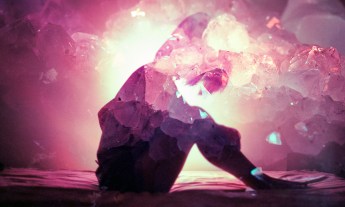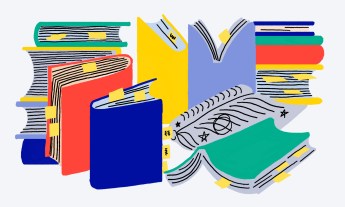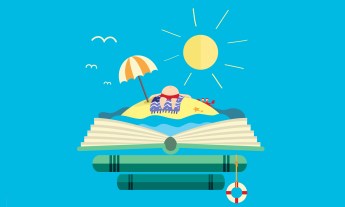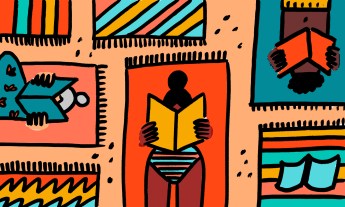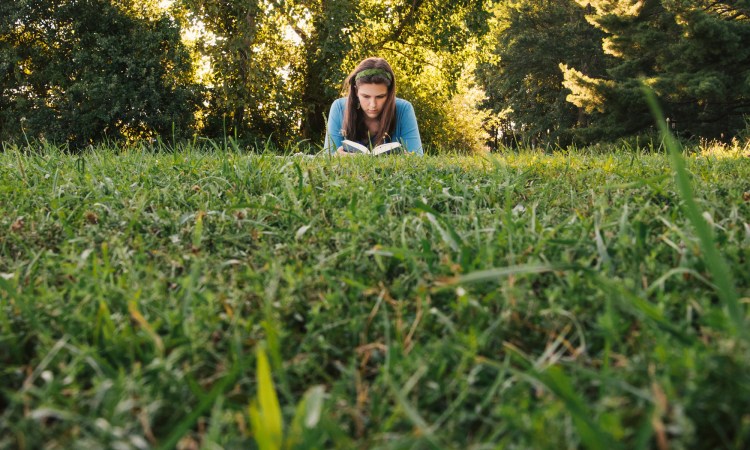
Here are the books that profoundly influenced women from our speaker community, and they’re just as wonderfully diverse as TED itself.
Jane Eyre by Charlotte Brontë
When I read this book for the first time as a deeply odd fifth-grader (or, as Jane says, “poor, plain, and little”), it felt like grasping onto a life raft that had been flung to me through the folds of time. Feeling such a kinship with Jane and with Charlotte Brontë herself made me feel, quite suddenly, less alone. I still re-read this book every couple of years, and it still speaks to something primal and yearning in me — the outsider woman who is finally seen, finds love, but also has the strength and self-possession to reject that love until she is able to accept it from a place of her own power and dignity. If you haven’t read it, do so immediately; if you read it a long time ago, it is well worth reading again; and if you, like me, can’t get enough of it, may I also recommend Wide Sargasso Sea, which is a prequel by Jean Rhys centered on the story of the mad wife in the attic.
— Naomi McDougall Jones (TED Talk: What it’s like to be a woman in Hollywood)
Good Woman by Lucille Clifton
I read this collection of poems at a time of life when I was extremely outwardly successful yet, as I later came to learn, mired in self-loathing. Clifton’s poems on blackness, femaleness, mothering and the body were the catalyst of my journey to self-love. Reading Clifton, I felt, “If these words are possible, if she is possible, maybe I am possible.”
— Julie Lythcott-Haims (TED Talk: How to raise successful kids — without over-parenting)
Madame Curie: A Biography by Eve Curie
The book that shaped me was a biography of Marie Curie, written by her daughter Eve Curie. I read it when I was a pre-teenager, and it motivated me to become a scientist. I was inspired by how she felt that scientific research was a deeply worthwhile, even noble, calling and that she also had a family (two daughters) and was a devoted parent as well as an iconic researcher.
— Elizabeth Blackburn (TED Talk: The science of cells that never get old)
Writings of Nichiren Daishonin by Nichiren Daishonin
Nichiren Daishonin was a Japanese philosopher (1222–82) who wrote at a time when women were dismissed and faced a life and future of woe. In this book, he encourages men and especially women to make possible the impossible. He addresses women with powerful phrases like, “Even if one were to meet a person who could cross the ocean carrying Mount Sumeru on his head, one could never find a woman like you. Even though one might find a person who could steam sand and make boiled rice of it, one could never meet a woman like you.” This kind of courage really shaped me in showing me the infinite value and dignity of life.
— Wanda Diaz-Merced (TED Talk: How a blind astronomer found a way to hear the stars)
Einstein’s Dreams by Alan Lightman
I read this book, a linked collection of short stories about dreams Einstein had, when I was a teenager, and it helped me see the world through different eyes. The scenarios that the author describes in succinct and beautiful prose are imaginary — in one, time is a circle, endlessly repeating itself — but reading them increased my awareness of how extremely narrow a framework of time and space we live in.
—Karen Lloyd (TED Talk: This deep-sea mystery is changing our understanding of life)
Any Pippi Longstocking book by Astrid Lindgren
Lately, in the context of the #metoo movement, I found myself reflecting upon the outsized influence that the children’s book character Pippi Longstocking has had on me. Growing up in the Netherlands, I was not surrounded by traditional stories created by Disney. The one character that was, was Pippi. A girl my age, Pippi was extraordinarily strong — strong enough to toss policemen off her veranda (hence my work today to hold the police around the world accountable for human-rights violations?). She was independent and lived in a big house by herself with a monkey and a horse (this was refreshingly different from dominant-gender narratives that involved futures created by princes and proposals), loyal, principled (she espoused sticking with your values over obeying rules), and anti-authority (she defied all formal structures of authority, from parents to educators — a key quality that I look for in leading a group of human-rights defenders). Last but not least, she was economically self-sufficient — she had a treasure trove of gold coins hidden in a tree trunk and taught me early on to be fiscally independent.
— Yvette Alberdingk-Thijm (TED Talk: The power of citizen video to create undeniable truths)
Blue Ocean Strategy: How to Create Uncontested Market Space and Make the Competition Irrelevant by W. Chan Kim and Renée Mauborgne
This book had an immense impact on me as I was developing the Runway of Dreams Foundation. It explores what it means to successfully create “blue oceans,” untapped market spaces ripe for growth and innovation. My middle son, Oliver, was born with a rare form of muscular dystrophy, which makes it hard for him to find fashionable and functional clothing. Through my experiences with him, I realized that millions of people around the globe were also struggling to access stylish clothing and that the fashion industry was not addressing their needs. Mainstream adaptive clothing was a wide-open “blue ocean” of opportunity, and the book gave me the tools and framework I needed to take action.
— Mindy Scheier (TED Talk: How adaptive clothing empowers people with disabilities)
Born to Run: A Hidden Tribe, Superathletes, and the Greatest Race the World Has Never Seen by Christopher McDougall
Ah, how this book has impacted me! First and foremost, it was the first non-schoolbook which I read fully from end to end. While I’ve started reading many books, I never finished any. Many people say reading is for some people, not for all, but reading this book gave me another perspective — we just need the right book for us to fall in love with reading! This book is what got me into reading, and what a blessing that has been. Second, for those who love running, who are training for their next marathon, or who feel freed when they run, this book is a gem in allowing us to connect with the belief that humans were born to run, and most important, to consider that we were born to run barefoot. This book made me appreciate living barefoot. It has made me remind myself to take off my shoes and let my feet live freely whenever I can.
— Lana Mazahreh (TED Talk: 3 thoughtful ways to conserve water)
Bridge Across My Sorrows by Christina Noble with Robert Coram
I read this memoir when I was in my 20s, and to this day it remains one of the most powerful human survival stories I have read. The author endured a harrowing childhood and adolescence in Dublin and, later, a violent marriage. As an adult, she traveled to Vietnam, where she turned her attention to helping the impoverished and vulnerable street children in Ho Chi Minh City. She went on to establish her own foundation, which now has programs in Vietnam and Mongolia. Her ability to survive and succeed has always stayed with me. I realized that self-determination and courage are innate qualities that no one can take from you and should never be underestimated. The book isn’t easy to read; I cried a lot but I could not put it down. If you like to read about strong, real women, this book is a must.
—Michelle Knox (TED Talk: Talk about your death while you’re still healthy)
Dept. of Speculation by Jenny Offill
I adored this novel from its first sentence. It is a portrait of a marriage seen through the eyes of an unnamed woman. It explores desire and its loss, the fears and hopes of birth and parenthood, and the terrors of things falling apart — all things that resonated deeply with me. I am also in awe of the apparently effortless way Offill weaves philosophy and history into her fictional narrative, rightly linking the intimate and domestic — traditionally seen as feminine spheres — to fundamental questions about the nature of knowledge and existence. This is a slender book (and as a mother of very young children, that is certainly a plus for me!), but each time I re-read it, I experience the kind of emotional connection with its protagonist that leaves me feeling listened to — which is what I value most in reading.
— Tiffany Watt Smith (TED Talk: The history of human emotions)
The God of Small Things by Arundhati Roy
Roy’s novel remains one of my favorites of all time. Her complex tale of an Indian family in Kerala unfolds masterfully through a series of flashbacks and side stories, and her writing is nothing short of stunning. It is an incredibly intricate work of fiction that touches on a myriad of sensitive themes in Indian culture and society, ranging from forbidden love to politics and the complexities of the caste system. The book came out in 1997, when I was in law school in Boston, and I was transported to another time and place while reading it. I was raised in the United States as a first-generation Indian, and this was one of the first times I read a story set in a backdrop that was culturally familiar to me, even though the story itself was completely unfamiliar. The critical and commercial global success of The God of Small Things made me realize that culturally diverse stories mattered, and it planted the seed in my mind that perhaps there was room for my story among those voices.
—Anjali Kumar (TED Talk: My failed mission to find God — and what I found instead)
The Untold Story of Milk: The History, Politics and Science of Nature’s Perfect Food: Raw Milk from Pasture-Fed Cows by Ron Schmid
This nonfiction book opened my eyes to the power that multinational corporations have over our food systems and the dangers and risks this poses to human health as well as livestock health. It puts into perspective how destructive consumerism is, and it made me question the power of marketing. It will make you think about the future of all food through a milky lens.
— Su Kahumbu (TED Talk: How we can help hungry kids, one text at a time)
Just Kids by Patti Smith
Just Kids reads like a poem, as Smith’s wordcraft transports you to the bohemian New York of the late 1960s and ’70s. While her memoir recounts the relationship she nurtured with her lover and friend, photographer Robert Mapplethorpe, what resonated with me was the way it depicts the insatiable drive that the two artists had to express and refine their art and creations. I was struck by their commitment to and faith in their inner artistic voice, a message that inspired me to be more creatively courageous, both in my scientific work and in my personal life.
— Miho Janvier (TED Talk: Lessons from a solar storm chaser)
Pussy: A Reclamation by Regena Thomashauer
This manifesto is as close to a come-to-Jesus moment as I’ll ever get. Thomashauer, who goes by the name Mama Gena (think: sexy, hilarious, take-no-prisoners, feminist, Jewish mother — the one who all your friends want to hang out with), has been working with women for 20 years to flip the script on our patriarchal culture. As women, we’ve ingested so much about sacrifice, suffering, working harder, working smarter, enduring, and sucking it up. She’s teaching us to stand for our pleasure and to stand for one another. Here’s what she says: when a woman is in her full pleasure, or — in Pussy parlance — “turned on,” everyone is taken care of. The first thing a turned-on woman does is turn to her sisters to bring them higher; her bright light illuminates her family and her community. She brings pleasure to her own life and to the world around her. Who doesn’t want that?
— Sue Jaye Johnson (TED Talk: What we don’t teach kids about sex)
The Hobbit by J.R.R. Tolkien
My family immigrated to America when I was 11, and this book was the first real literature that I read after I learned English. It helped me understand that life is meant to have a villain or two, that failure often leads to the climax, and that people, like characters, develop, so even the most unlikely hero can save the day. And even though every great story must come to an end, there’s always a sequel — all you have to do is to get out of your Hobbit hole and embrace your curiosity to go on an adventure.
— Fawn Qiu (TED Talk: Easy DIY projects for kid engineers)
In Search of Our Mothers’ Gardens: Womanist Prose by Alice Walker
In her 1974 essay, “In Search of Our Mothers’ Gardens, The Creativity of Black Women in the South,” which is part of this collection, Walker challenges us to imagine the experiences of our creative female ancestors and calls upon Black women to define their own identity as Black women artists throughout history: “How was the creativity of the Black woman kept alive, year after year and century after century, when for most of the years Black people have been in America, it was a punishable crime for a Black person to read or write? And the freedom to paint, to sculpt, to expand the mind with action did not exist. Consider, if you can bear to imagine it, what might have been the result if singing, too, had been forbidden by law.” When I first read these words, I wanted to explore the possibilities of these experiences and reinvest in the work of other Black female artists as a way of locating my own identity as an artist. Ever since I was a child, art has played a large part in my life. I am fascinated by the work of 19th-century artists and equally intrigued by the photographic images in my family album of the women that came before me.
—Deborah Willis (TED Talk, given with her son Hank Willis Thomas: A mother and son united by love and art)
Being with Dying: Cultivating Compassion and Fearlessness in the Presence of Death by Joan Halifax
It was important to me that I give my mother the best possible experience in the very difficult and precious time when she was dying. But I had no idea how; I had no experience. I researched this topic as much as I researched cancer itself and how to fight it, and this book was the most helpful I read. Halifax is truly a gift to our world. She is the ultimate role model of how to be with someone who is going through the dying process. In understanding how to be present to the letting go of life, we can learn how to live more presently.
— Alyssa Monks (TED Talk: How loss helped one artist find beauty in imperfection)
Mothers and Others by Sarah Blaffer Hrdy
This nonfiction book is an eye-opening exploration into how children are raised around the world and how child-rearing can inform the understanding of human nature more broadly. I relied heavily on it when writing my own book, which explores the brain mechanisms that enable us to care about other people’s welfare. As it turns out, the same brain networks that support caring for children also support care more broadly, an idea that builds on the author’s most essential point: one of the things which makes humans special as a species is that we don’t limit care to our own children. We can expand our circles of care and compassion outward to encompass nearly anyone, and it’s all because of the way our brains were set up to parent.
— Abigail Marsh (TED Talk: Why some people are more altruistic than others)
Anne of Green Gables by L.M. Montgomery
Just a few pages into this book, I realized Anne Shirley was a kindred spirit. An orphaned girl with no material advantages but a richness of soul, imagination and ambition, Anne was wonderfully imperfect and extraordinarily real. I met her in sixth grade: She taught me that different doesn’t mean bad, smart beats pretty, and tomorrow is always fresh, with no mistakes in it — yet. Her courage to try and her willingness to hope inspired some of my own leaps and softened the thuds too. When you’ve got a friend who doesn’t just see a lake but the Lake of Shining Waters, you can find the silver lining in just about anything.
— Kate Adams (TED Talk: 4 larger-than-life lessons from soap operas)
Wide Sargasso Sea by Jean Rhys
This great feminist novel, which is set in the Caribbean, blew me away at 18. Hypnotic and mesmerizing and sensuous, with the weight of the tropics, sin and loneliness, it was exhilarating because of the author’s psychological bravery and insight. I hope people are still reading her — she changed the lives of all the young women I knew.
— Anne Lamott (TED Talk: 12 truths I learned from life and writing)
The Tibetan Book of Living and Dying by Sogyal Rinpoche
This seminal work changed my life in more ways than one. It distills ancient and profound Tibetan wisdom in a manner that is comprehensible to the Western mind. The two parts of the book — Life and Death — are naturally related to each other. While I am not an assiduous meditator, some of the advice and techniques explained in the Life section have stayed with me after just one reading. I learned how to calm the mind, even in situations that would otherwise cause a panic attack. But I found the section on dying even more powerful and useful. In Western societies we fear death and don’t talk about it much. Here, we learn how to prepare for our own end and how to help others transition. This was of immense value at a time when so many young people, friends and contemporaries were decimated by AIDS in the 1990s. Later on, as I grew older, so did my aunts, uncles and father. Facing up to their departures in ways practiced by advanced spiritual leaders takes away some of the pain, fear and sadness — theirs and ours. Unreligious and truly transformational, this book continues to inspire and provide endless wisdom on the great mysteries and challenges of our human existence.
— Philippa Neave (TED Talk: The unexpected challenges of a country’s first election)
Salt by Nayyirah Waheed
For the past couple of years, I’ve had this collection of poems at my bedside. It’s brutal and love-filled at the same time, and I always find something that speaks to what I am feeling at the moment. Today, it’s this one …
knowing your power
is what creates
Humility.
not knowing your power
is what creates
Insecurity.
—ego
— Sayu Bhojwani (TED Talk: Immigrant voices make democracy stronger)
Sexing the Cherry by Jeanette Winterson
This novel really influenced my thinking. The writing is so visual — gritty and sublime at the same time. It allows you to engage with vastness and wonder and the itchy curious experience of having your feet in mud. I also like the back story of the author, Jeanette Winterson. She is a difficult character to peg, one who is courageous, compassionate, intelligent, violent, proud, and argumentative, a fighter with a flair for love stories. She has definitely influenced my connection with multifaceted ideas of “female,” “queer” and “independent.”
— Emily Parsons-Lord (TED Talk: Art made of the air we breathe)








